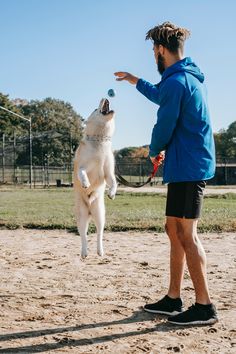
Dog Obedience School
Dog obedience schools play a crucial role in fostering well-behaved, sociable canine companions and strengthening the bond between dogs and their owners. These specialized training programs offer a structured environment where dogs learn essential commands, social skills, and appropriate behaviors, while owners gain valuable insights into effective communication with their pets.
The primary goal of dog obedience school is to teach dogs to respond reliably to basic commands such as sit, stay, come, heel, and down. These fundamental skills form the foundation of good canine behavior and are essential for ensuring the safety of both the dog and those around it. Beyond these basics, many schools also offer training in more advanced skills, including off-leash control, agility, and even therapy dog certification.
One of the key benefits of obedience school is the socialization it provides. Dogs are exposed to various environments, people, and other dogs in a controlled setting. This exposure is crucial for developing well-adjusted pets that can handle different situations calmly and confidently. For puppies, early socialization through obedience classes can prevent future behavioral issues and fears.
Obedience schools employ various training methods, with most modern approaches focusing on positive reinforcement techniques. These methods use rewards such as treats, praise, or play to encourage desired behaviors, making the learning process enjoyable for both dogs and their owners. Positive reinforcement has been shown to be more effective and less stressful for dogs compared to punitive methods.
Classes typically run for several weeks, with sessions held once or twice a week. This schedule allows for consistent practice and gradual skill building. Many schools offer different levels of classes, from puppy kindergarten to advanced obedience, catering to dogs of all ages and skill levels.
One of the often-overlooked benefits of dog obedience school is the training it provides to owners. Handlers learn how to effectively communicate with their dogs, read canine body language, and maintain consistency in their commands and expectations. This education is crucial for reinforcing lessons at home and maintaining good behavior long after the classes end.
Professional trainers at obedience schools can also help address specific behavioral issues such as excessive barking, leash pulling, or aggression. They provide personalized advice and strategies tailored to each dog’s unique personality and challenges.
Attending obedience school can be particularly beneficial for first-time dog owners who may feel overwhelmed by the responsibilities of training. It provides a supportive environment where they can learn from experienced trainers and fellow dog owners.
In conclusion, dog obedience schools offer far more than just teaching dogs to follow commands. They provide a comprehensive approach to canine education that benefits both dogs and their owners, leading to happier, healthier, and more harmonious relationships between humans and their four-legged companions.




